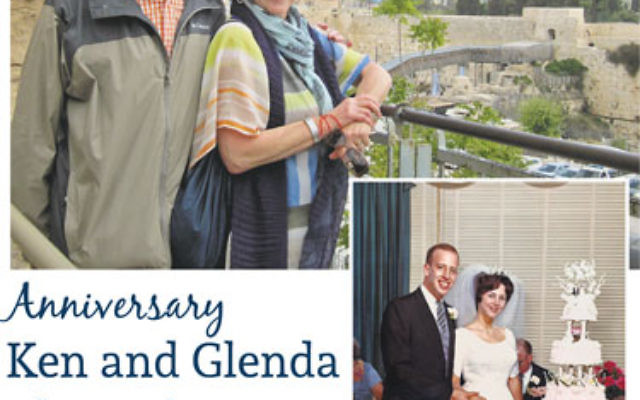Life on the Edge: A Female Lone Soldier’s Gaza Story
By David R. Cohen / david@atljewishtimes.com
During Operation Protective Edge last summer, four female soldiers went with the Israel Defense Forces into Gaza. One of them was Staff Sgt. Elle, an Australian-born lone soldier who served as paramedic in a combat engineering battalion.
Elle’s regular service with the IDF has ended, and she is touring the United States with a Friends of the IDF delegation. She visited Atlanta on Thursday, Aug. 6, and stopped by the Atlanta Jewish Times to chat about her combat experiences.
AJT: You grew up in Australia. How did you end up serving in the IDF?
Elle: I was born and raised in Perth, which is in Western Australia. I grew up in a very Jewish and Zionist community, plus my parents are Israeli. At the end of Year 12 in school, we have this tradition where graduates take a gap year and usually travel to Israel. I didn’t know what I wanted to do, so I spoke to my cousin on the phone who was in the Navy SEALs at the time, and he told me I should join the IDF. I realized that if I want to live in Israel anyway, then I’m obliged to do the army like every 18-year-old. So I started researching positions and came across paramedic. There was no going back from there.
AJT: How did you end up in Atlanta this week?
Elle: I’m on a delegation with the FIDF. Because I’m a lone soldier, I’ve had a lot more interaction with the FIDF before this. They send lone soldiers home to go visit their parents once per service. We make 800 shekels ($210) a month, so we can’t really afford a plane ticket. The FIDF sent me home, and now they sent me here. It’s been nice meeting and greeting all sorts of people across the country.
AJT: Favorite place you’ve been so far on this tour?
Elle: This trip? Probably the Hamptons. Sorry, Atlanta. … Also San Diego and Chicago might be the two nicest places in the States that I’ve been to.
AJT: You were one of only four women who went into Gaza with the IDF during Operation Protective Edge. How did you end up down there?
Elle: We were the first combat engineering battalion to be called down to the south. You get down there, and it’s just a huge mess. After 24 hours of no sleep and just getting equipment prepped, one of the officers came and debriefed us on the situation. They wanted to station me at the border in an ambulance, and I kind of forced my officer to put me with one of the entering companies. That way if something were to happen, I’d be there to treat them straight away. Because I went in with one of the armored companies, someone else had to get kicked out of that specific vehicle. So for the two weeks before we went in, they had to train me to do what he would normally do, which was mostly handling explosives.
AJT: What was it like down there on a day-to-day basis?
Elle: Once we were inside and I’m wearing this bulletproof vest, which is just like two walls on you, it was really uncomfortable. We’re in there with our weapons, and it’s 40 degrees centigrade (104 Fahrenheit). Everyone’s hot, and it’s stuffy and smelly. All we had to eat was tuna, corn and baked beans, so eventually I had to start hiding the beans because the boys wouldn’t stop eating them, and it made them a bit gassy.
AJT: What other hardships did you face as the only woman in your unit?
Elle: A lot of the time we were not allowed to leave the APC (armored personnel carrier), which pretty much means that if the boys need to do what they need to do, they just take a bottle, whip it out and are good to go. I don’t have that luxury, so I actually found myself drinking less water so I wouldn’t have to pee as much.
AJT: When you speak at FIDF events, what message do you try to get out?
Elle: It’s really important for me to get people to encourage the IDF. Living in America or Australia, you read the newspaper, and you see the news, but you don’t really understand how tough it is at times in Israel, especially for the soldiers. It’s not just during conflict when we have to support the IDF. Throughout the year we have to remember that these soldiers are on these bases, and they are going home once or twice a month maybe. They’re doing everything they can so that Jews all over the world can know that if something goes wrong in their country, they have somewhere to go back to. I think it’s really important to support that.
AJT: How do you feel about the IDF now that your regular service is complete?
Elle: I’m very angry at the world for not seeing Israel as it is. I think Israel’s military is one of the most humane in the world. I’ve treated Syrians and Palestinians, and it could be a Palestinian who was chucking rocks at me two hours earlier, but he’s injured now, and I’m a paramedic. I’m going to do what I can to help him.
AJT: What are your plans after this FIDF tour?
Elle: I’m going to start working as a paramedic for Magen David Adom when I get back to Israel. I’m also saving up, and I think I’m going to go to India or South America. I don’t know; there’s so many decisions. … That’s the one thing about getting out of the Army: I have to make every single decision now.





comments